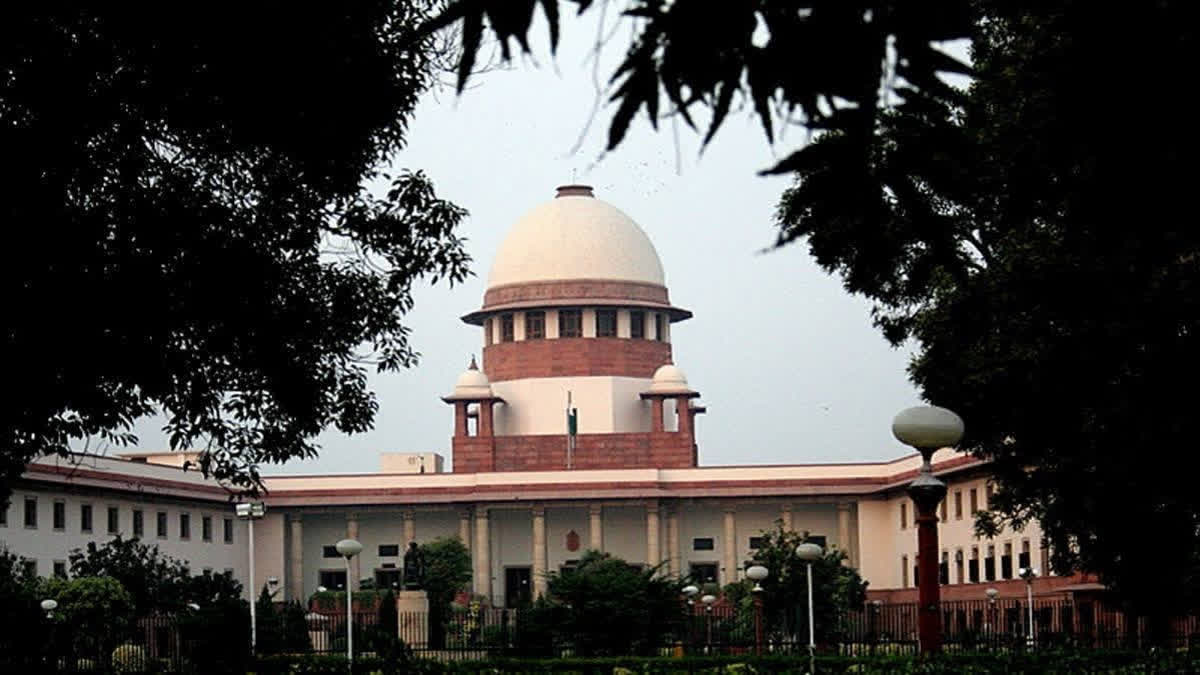New Delhi: The Supreme Court on Monday said perfect compensation is hardly possible but one has to see that the victim has suffered at the hands of the wrongdoer and the court must take care to give full and fair compensation, while enhancing compensation of an accident victim, who, on account of his serious injuries, was rendered 60% permanently disabled.
A bench comprising Justices Sanjay Karol and Prasanna B Varale said it is a well-accepted norm that money cannot substitute a life lost but an effort has to be made for grant of just compensation so far as money can compensate.
"Perfect compensation is hardly possible but one has to keep in mind that the victim has suffered at the hands of the wrongdoer and the court must take care to give him full and fair compensation for that he had suffered," observed the bench.
The bench said in some cases for personal injury, the claim could be in respect of lifetime's earnings lost because, though he will live, he cannot earn his living, and added, in others, the claim may be made for partial loss of earnings.
"Each case has to be considered in the light of its own facts and at the end, one must ask whether the sum awarded is a fair and reasonable sum", said the bench, while enhancing the amount of compensation to be granted to the petitioner to Rs. 48,00,000/- in toto.
The top court's judgment came on an appeal filed by Atul Tiwari challenging an order passed by the Madhya Pradesh High Court in September 2022. The High Court had partially allowed Tiwari’s appeal by granting an enhancement in the compensation for loss of income from Rs. 11,23,200 (which was awarded by the Motor Accidents Claims Tribunal) to Rs. 27,21,600.
The apex court said the High Court has failed to consider the fact that MACT's rationale in granting compensation for a short duration is based on the reports highlighting the improvement in the petitioner's health however, it has failed to consider the fact that the reports do not guarantee the recovery of the petitioner within a specified time.
"Hence, the MACT has acted against the recommendations by the doctors as to the period of recovery. In our considered opinion, the compensation granted under the head – non-pecuniary compensation is not sufficient to meet the needs of the petitioner. Hence, in view of the erroneous consideration by the MACT in granting compensation warrants for its enhancement," said the bench.
The bench observed that the High Court has rightly adopted the settled position of law in assessing the notional income and subsequently enhancing the loss of income of the petitioner after considering his 60% disability. “However, the High Court has utterly failed in delving into the aspect of correctness of compensation granted under other heads by MACT," it said.
On October 3, 2009, the petitioner herein was travelling to Panchmarhi with his friend on a motorcycle. They met with an accident with a truck which was being driven on the wrong side and in a negligent manner. The petitioner suffered various serious injuries including injuries to head, jaws, legs, knees, chest and ribs for which the petitioner was operated on three occasions. On account of his serious injuries, the petitioner was rendered 60% permanently disabled.
The MACT vide its order dated June 30, 2014, allowed the petitioner’s application and granted a compensation of Rs. 19,43,800 (out of which loss of income was Rs 11. 23 Lakh), to the petitioner along with interest at rate of 7% per annum from the date of application till the date of payment.



